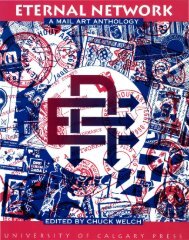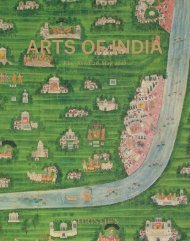1JZGauQ
1JZGauQ
1JZGauQ
You also want an ePaper? Increase the reach of your titles
YUMPU automatically turns print PDFs into web optimized ePapers that Google loves.
AN ARCHAEOLOGY OF THE IRON CURTAIN<br />
my advert on the border guard website for information about the former<br />
militarised border as he has always found it interesting. He explains how<br />
visits to Bratislava in 1984 and East Berlin in 1987 gave him an insight to<br />
the “bleak everyday life in the Eastern Bloc” (Michael 2011 pers. comm. 10 th<br />
January). He continues to explain the effects this had on him: “This of<br />
course left a particular threatening impression on me, but then also<br />
certainly some form of fascination, when standing only a few hundred<br />
metres away from the fences, the watchtowers and the foot patrols”<br />
(Michael 2011 pers. comm. 10 th January). In 2008 when Schengen had been<br />
extended and the borders of many of the former Eastern countries were<br />
open he decided to investigate these areas that had tickled his imagination<br />
for such a long time. During weekends and holidays he started walking<br />
along the paths following the former fence line to investigate what remained<br />
of the border guards. He found small sections of the former fencing at<br />
Čižov, at Navary in South Bohemia, Czech Republic, and along a cycle path<br />
between Breclav and Potok, near the tripoint of Austrian, Slovakia and<br />
Czech Republic. He came across many border guard stations in different<br />
stages of ruin. Some have been reused, one even as a brothel, whilst the<br />
majority of the sites have been left to deteriorate (Michael 2011 pers. comm.<br />
10 th January).<br />
At the National Record in Kew Garden, London I find a story told by a<br />
South African woman feeling powerless to help her husband held in<br />
captivity by the government on the other side of the border. From the<br />
Austrian side she is trying to make the diplomats of the West understand<br />
the disastrous results a national border can have. In her letter she writes<br />
about her husband who left Czechoslovakia in 1969 because of the political<br />
situation and settled down in South Africa. Whilst in Austria in 1972 he<br />
went to the border near the town of Mikulov in order to wave to his parents<br />
whom he had not seen since he left three years earlier. The wife is<br />
suggesting that the phones must have been bugged when arrangements<br />
were made with the parents as there were several soldiers at the ready when<br />
he turned up. Although he stayed within Austrian territory he was shot and<br />
dragged by force over the border. She recalls the event:<br />
On the road left of my car I noticed a cap belonging to one of the<br />
frontier police lying on the ground. Immediately afterwards I heard one<br />
single gunshot and then a series of gunshots as if from a machine gun.<br />
By this time I had reached the bridge which spans the small canal which<br />
is the border and I looked over to the left to see two or perhaps three<br />
176




